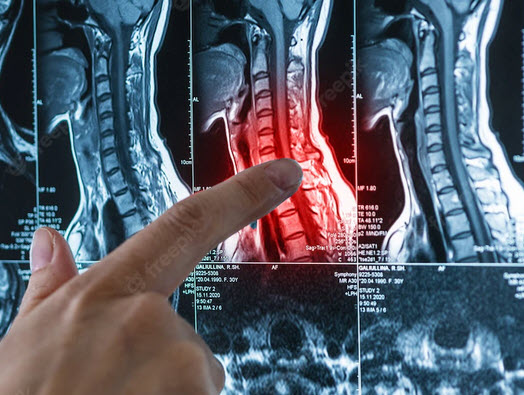The cervical spine is the top portion of the spine that makes up the neck. Cervical myelopathy is a condition in which the spinal cord becomes compressed. If untreated, it can cause the cervical spine to deteriorate and become even more painful or immobile. The more you know about cervical myelopathy, the better you’ll recognize its symptoms and know when it’s time to schedule an appointment with a specialist such as Dr. Fischer for proper diagnosis and treatment.
What causes cervical myelopathy?
The spinal cord runs from the top of your spine in the neck region down through the base of the spine in your lower back. All of the parts of your spine work together to support your body and allow you to move comfortably. When part of the structure is damaged, your spine may not function correctly. This is the case with cervical myelopathy, which means that the neck portion of your spinal cord is compacted. Your body changes over time and can wear down, so aging is the most common cause of cervical myelopathy. Other causes of a compressed spinal cord might be trauma to the body from an accident or fall, cervical disc herniation, or rheumatoid arthritis.
What are the symptoms?
Patients with cervical myelopathy have one or more symptoms that may include:
- neck pain and stiffness
- balance or coordination problems
- numbness or tingling in the arms, hands or fingers
- muscle weakness
- decreased fine motor skills
How is it diagnosed?
Spine surgeon Dr. Charla Fischer in New York City is experienced in handling many types of spine conditions. Diagnosing cervical myelopathy involves a thorough physical examination, including evaluating movement, reflexes, sensations and more. Imaging tests like CT scans or MRI may be performed to better visualize spinal cord compression and tissue damage.
What is the treatment?
Conservative treatment is the first choice in treating cervical myelopathy. Dr. Fischer may suggest medications for symptom relief, physical therapy to stretch and strengthen affected areas, or a cervical collar to limit neck movement. If these methods are not sufficient, Dr. Fischer might recommend surgery to repair the neck structure and relieve symptoms. Your physician will discuss all options and the risks and outcomes so that you can make an educated and confident decision about how to proceed in eliminating your cervical myelopathy symptoms.

